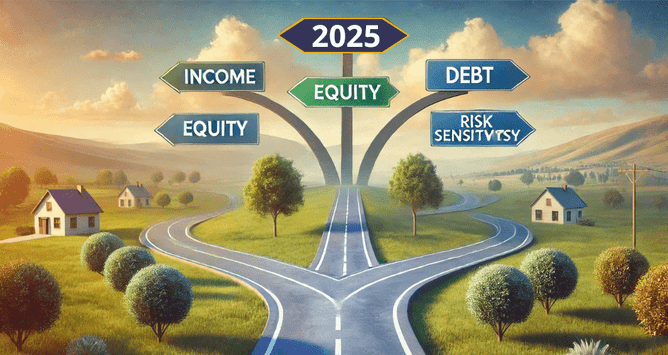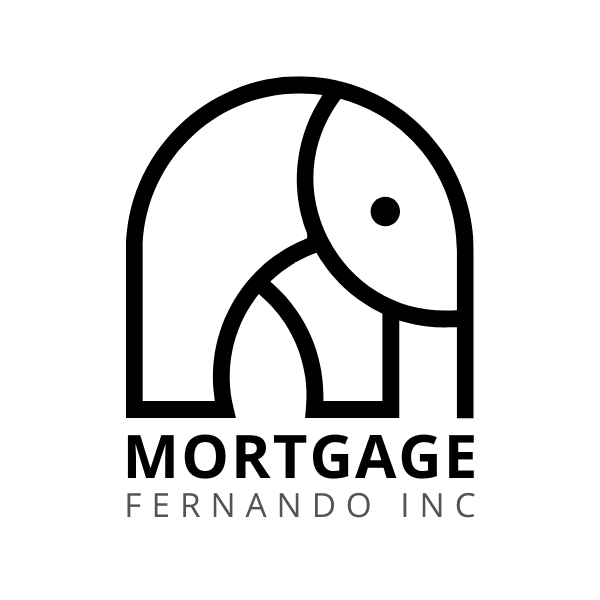Predicting interest rates for 2025 feels like trying to forecast the weather during a hurricane. With uncertainty swirling around the economy, mortgage decisions can feel overwhelming. As professionals in the industry, we need frameworks that aren’t at the mercy of the latest market predictions. That’s why strategies like the I.D.E.A.S. framework I read 10 years ago are more critical than ever.
Here’s what we’re dealing with and why it matters for your mortgage decisions in the coming year.
2025’s Economic Crossroads: What to Watch For
The Canadian economy is at a pivotal moment. While popular sentiment might suggest we’re on the verge of a downturn, the reality is far from clear-cut. Consider the forces pulling in different directions:
Disinflationary Pressures
Population decline: A slower-growing population reduces overall consumption.
AI-driven productivity: Efficiency gains can stabilize or even reduce prices.
Household debt: With debt at record levels, many households are tightening their belts.
Global economic slowdowns: Major economies, particularly China, are seeing slower growth.
Re-Inflationary Risks
Fiscal stimulus: Government spending may pump money into the economy.
Wage increases: Rising wages at double the rate of inflation push prices higher.
Real estate revival: A rebound in housing demand could drive up prices.
Currency weakness: A declining loonie makes imports more expensive, fueling inflation.
With these conflicting forces, forecasts for rates and inflation are murky at best. As the Bank of Canada struggles to provide clarity, we’re left with a question: How do you choose a mortgage term in such uncertainty?
The I.D.E.A.S. Framework: A Smarter Way to Choose a Mortgage Term
Developed over a decade ago, the I.D.E.A.S. framework is a simple yet effective tool for analyzing mortgage term options. It emphasizes the importance of tailoring decisions to your unique financial and life circumstances. Here’s how it breaks down:
I – Income
Your job stability and growth potential play a critical role. If your income is secure, you may have more flexibility to explore riskier options like variable rates. On the other hand, if job security is a concern, a fixed-term mortgage can offer peace of mind.
D – Debt
High debt-to-income ratios make taking on additional interest rate risk unwise. Conversely, if you have manageable debt levels, a shorter-term or variable-rate mortgage might save you money in the long run.
E – Equity
Having significant home equity provides a safety net. If rates rise unexpectedly, homeowners with equity can refinance or tap into their home’s value if needed.
A – Assets
Liquid assets, like savings or investments, act as a buffer. If you can cover unexpected expenses or rate hikes, you might feel comfortable with more variable-rate exposure.
S – Sensitivity to Risk
This factor is the cornerstone of mortgage decision-making. How much financial risk can you handle? Can you manage a potential 200–300 basis point increase in rates? Are you comfortable with the payment fluctuations of an adjustable-rate mortgage?
Beyond I.D.E.A.S.: The Bigger Picture
While the I.D.E.A.S. framework provides a strong foundation, choosing the right mortgage term requires a holistic look at your life. Key questions to consider include:
Are you planning to move in the next five years?
Do you anticipate changes in family or employment, such as maternity leave or a new job?
Will you need additional financing for investments or a business venture?
Where are we in the rate cycle? Are rates trending up or down?
Life happens. Your mortgage strategy should accommodate that.
2025 Rate Projections: The Crystal Ball Is Fuzzy
While many analysts believe we’re due for rate cuts in 2025, the uncertainty surrounding inflation, global trade, and domestic policy makes this far from a sure bet. Forward rate markets suggest rates may fall closer to the Bank of Canada’s 2.75% neutral rate, but the timing and magnitude of any cuts remain unknown.
For borrowers, this means relying less on rate predictions and more on personal financial planning.
The Case for Customization
The mortgage market isn’t one-size-fits-all, especially in a volatile environment. Your decision should reflect your risk tolerance, financial goals, and future plans. While some borrowers might thrive with a variable rate, others may find security and predictability in a longer-term fixed rate.
When working with clients, I emphasize personalized advice over cookie-cutter solutions. Using frameworks like I.D.E.A.S. ensures we cover all bases, helping you make informed decisions about your mortgage term.
Let’s Talk About Your Mortgage Strategy
2025 may be uncertain, but that doesn’t mean your mortgage strategy has to be. If you’re navigating the complexities of term selection, let’s discuss how the I.D.E.A.S. framework and a personalized analysis can work for you. Together, we’ll find the mortgage that fits your financial goals and life plans.
Book a Consultation to explore your options today.

